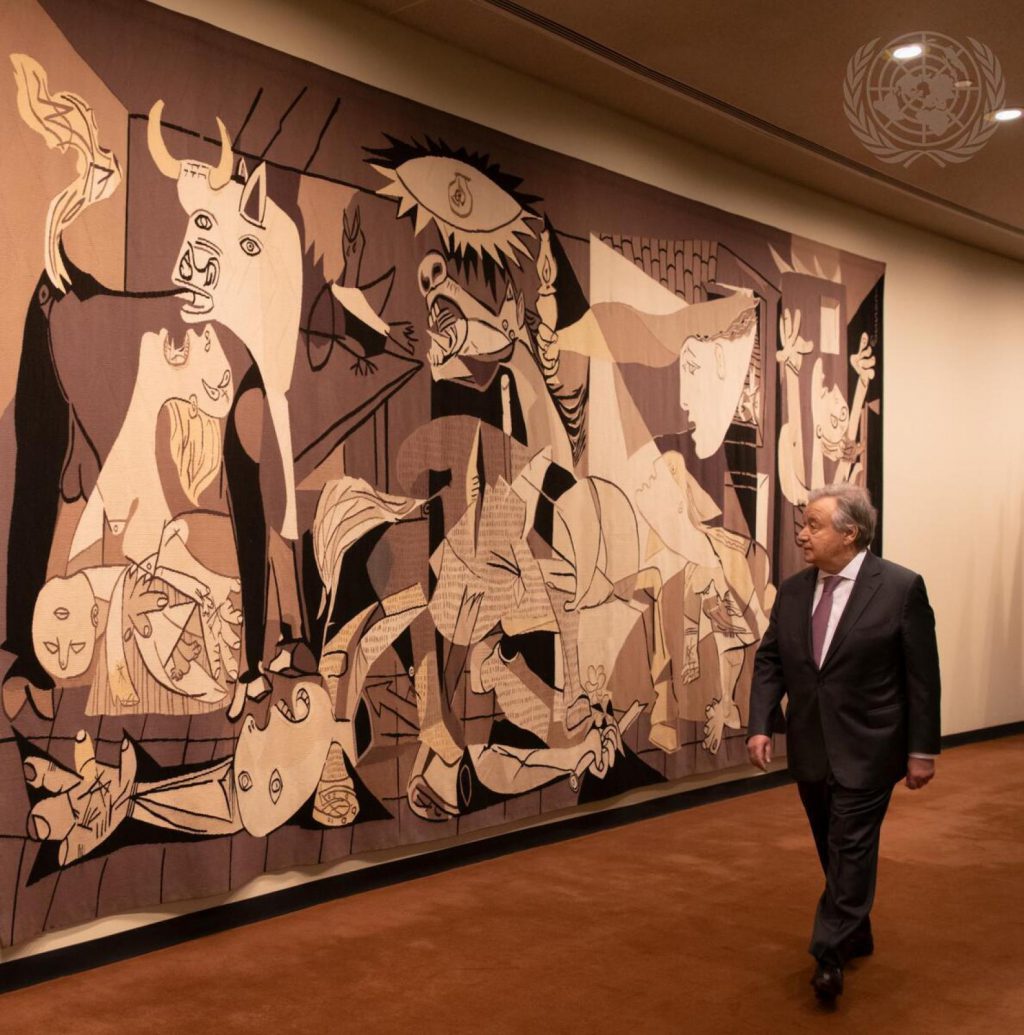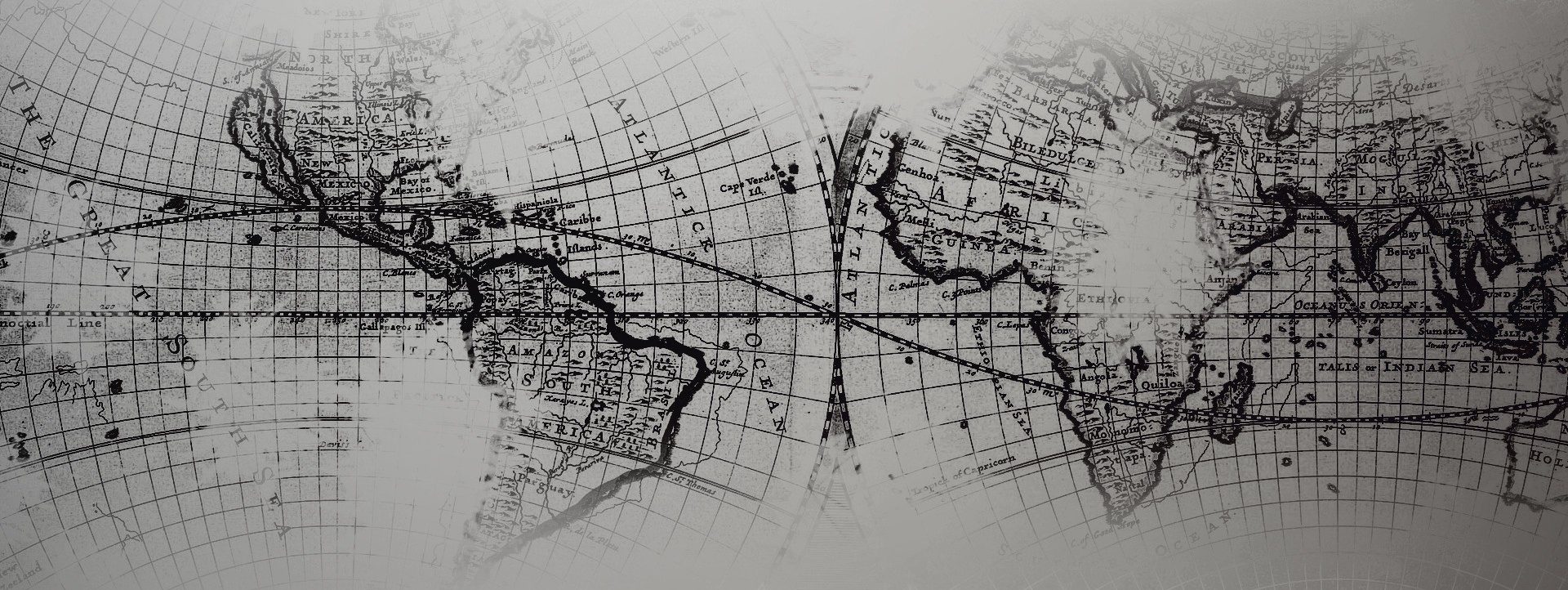
Views: 94
We have to keep in mind that a term and notion of security usually implies a kind of sense of protection and safety from different possible harms coming from „outside“. Therefore, it can be generally acceptable and understandable that the states want to protect their own territories by expanding great resources in making their territorial safe. Security topics are of very different kinds, ranging from the causes of conflict between states to deterioration in the global climate or women’s rights in global politics.
The Conception of a System
The conception of international systems of states is crucial as an explanatory mechanism of both global politics and global security models. However, in order to understand international systems of states firstly the very notion of a system itself has to be clarified and defined. In this context, it can be said that „a system is an assemblage of units, objects, or parts united by some form of regular interaction“.[i] Any system is necessarily constructed of different members on micro and macro levels which are interacting between themselves from horizontal and vertical perspectives. The member units of a system are of different sizes, capacities, potentials, wealth, might, and therefore of different positions regarding the decision-making procedure and especially power.
For the reason that member units of a system are constantly interacting with each other either from horizontal or vertical perspectives, it is quite natural that in the case of a change in one unit, the reactions to such change are expected by other units. The most expressed examples are the arms race, seeking the balance of power, making political-military blocs with other units, or even in the most drastic cases, committing aggression on the member unit. Any system with its member units has a tendency to regulate the relations between them and to try to respond by different means if those relations are changed at the expense of the hegemonic unit(s) of the system. It can exist at the same time two or more systems that are separated from each other by regulated boundaries, but different systems very often collaborate across the boundaries, for instance, in the areas of economy, knowledge, or technology exchange as it was the case during the Cold War 1.0 era (1949−1989). Finally, one system can break down for any reason which means that necessary changes within the system were not achieved in order to save it (for instance, the case of the Warsaw Pact in 1990−1991). Subsequently, instead of the old system a new system can emerge or the member units of the old system can be simply absorbed by another one as it happened, for example, with the majority of the Central and South-East European states after the Cold War 1.0.
International Systems of States
It is very difficult to fix the exact date when the global system of international relations (IR) and therefore global security models started to work for the very reason that the process of globalization occurred over many centuries.[ii] However, the modern European system of IR can be traced back up to the time after the 1648 Westphalian Peace Treaty, while the process of globalization of international systems of inter-states relations started to work from the first half of the 19th century.
International systems of inter-state relations and global security became after the WWII investigated as academic subjects within the framework of World Systems Theory (WST) which recognizes that the states are historically playing a fundamental role in IR and they will do that in the future as well but the systems of relations of (nation)-states have to be understood and put in the context of global unity rather than conflicts based on realizations of different national interests. What the theoreticians of WST suggest is that the most meaningful system of global security has to be based on the world-system but not on the nation-states system. Therefore, they believe that international cooperation and order will replace international conflicts and anarchy. However, behind WST is, basically, hidden a system of Capitalist World-Economy (CWE) which is advocating the ideology of globalization as a new form of Western global imperialism based on the international division of labor. Thus, according to CWE, the whole world is divided into three labor and economic zones: the core-states (the Western developed mature economies); the periphery-states (mainly ex-colonies from Africa with still underdeveloped economies); and the semiperiphery-states (mainly East-European ex-socialist states and Middle-East oil-riched states with rising economies and growing infrastructure). The essence of WST/CWE is that globalization has to function to the full benefit of the core-states which are fully exploiting the perifery-states with semiperiphery states as a buffer between core and periphery segments of the world economy which are partially exploited by the core-states (by financial and economic means). In one word, WST/CWE is trying to legitimate the existence and functioning of global Western capitalism and its exploitation of the rest of the world by the promulgation of globalization ideology.[iii] However, the liberal ideology of globalization is advocating in reality the global process of (pervasive) American Westernization from all points of view – from cultural, economic, or political to the issues of values, tradition, and customs.[iv]
Historically, there were three fundamental types of international systems or relations between the states as the crucial actors in global politics even today: 1. Independent; 2. Hegemonic; and 3. Imperial.[v]
The Independent State System (ISS) is composed of the states as political actors and entities and each of them claims to be independent which means both autonomous and sovereign. The fundamental feature of such a state, at least from the very theoretical point of view, is that it has the right and possibility to make its own foreign and domestic policies out of any influence or dependence from the outside. The ISS presupposes that the state territory and its citizens are under full control and governance by the central state authority and that the state borders are inviolable from outside. In other words, any outside actor is not eligible to interfere in the domestic affairs of the state which can be governed only by one „legitimate“ authority that is internationally recognized as such. An independent state has to be as well autonomous which means (as it meant at the time of ancient Greeks wherefrom the term comes) that the legitimate state authorities are adopting their own law and organizing the state activities, political and other types of life of the society according to it but not according to the imposed law, rules or values from the outside. States had to be equally treated and understood in regard to their claims to independence, autonomy, and sovereignty regardless of the very practical fact that not all of them are of the same power, capabilities, and might.[vi]
The Hegemonic State System (HSS) is based on an idea of a hegemon and hegemony imposed by a hegemon in IR which means that one or more states (or other actors in politics) dominate the system of IR or/and regional or global politics. A hegemon is fixing the standards, values, and the „rules of the game“ and having a direct influence on the politics of the system’s members like, for instance, the US in the NATO bloc.
There are three possible types of HSS in global politics:
- Unipolar (or Single) hegemony, when a single state is dominating as was the case with the US immediately after WWII.
- Bipolar (or Dual) hegemony, when two dominant states exist in global politics as was the case during the time of the Cold War (the USA and the USSR).
- Multipolar (or Collective) hegemony, when several or even many states dominate international relations like during the time after the Vienna Congress in 1815 (Russia, Austria, Great Britain, France, and Prussia).
In practice, in any of these three HSS, lesser powerful actors may interact with their powers, but they have to get permission from the hegemon for such action. In HSS, usually, the domestic affairs of the states are left untouched by the hegemon, while their foreign affairs are strictly under the hegemonic control.
The third type of IR, the Imperial State System (ImSS), existed from the ancient time (Assyria, Persia, Macedonia, Rome) and has been dominant in Europe, North Africa, and Asia in the Middle Ages (the Frankish, Holy Roman, Byzantine, Ottoman or Habsburg empires). The essence of empire as a system is that it is composed of separate societal, ethnic, national, linguistic, or/and confessional parts which are associated by regular interaction. However, within such a multistructural imperial framework it is a regular practice that one unit dominate over others by imposing over the rest its own political supremacy. The rest of the framework units have to accept such reality either by force or by interest while political supremacy by one (ruling) part can be accepted by the others either implicitly or explicitly.[vii] However, the question arises what is the difference between the Hegemonic and the Imperial State Systems as these two systems seem to be very similar if not even the same? Nevertheless, the fundamental difference is that a dominant unit of an empire is much more able to manage other subjects of the state system in comparison to HSS and especially to force them to work for the central authority (tax collection, recruiting people for the imperial army, appointing local political client leaders, etc.). The empires are usually created and enlarged by military conquest, but also they can be militarily destroyed from the outside or disappear due to the inner revolutions followed by civil wars.
In conclusion, the academic research field of Security Studies is extreme complexity raging from the standpoint that these studies should have a narrow military focus as the fundamental security threat to the territorial integrity of states comes during times of conflict to the view that individuals are the final research object of the studies but not the states themselves. Therefore, many academics focus their research on global security basically on human emancipation which is usually understood as achieving wide scope of freedoms – both individual and group.[viii] They argue that the academic discipline of Security Studies should focus on them but not on the security of the state.
Ex-University Professor
Research Fellow at Centre for Geostrategic Studies
Belgrade, Serbia
www.geostrategy.rs
sotirovic1967@gmail.com © Vladislav B. Sotirovic 2023
[i] Karen A. Mingst, Essentials of International Relations, Third edition, New York−London: W. W. Norton & Company, 2004, 81.
[ii] On globalization of world politics, see (John Baylis, Steve Smith, Patricia Owens, The Globalization of World Politics: An Introduction to International Relations, Seventh edition, New York: Oxford University Press, 2017).
[iii] On world-system, see more in (Alvin Y. So, Social Change and Development: Modernization, Dependency, and World-System Theories, Newbury Park−London−New Delhi: Sage Publications, 1990; Immanuel Wallerstein, World-Systems Analysis: An Introduction, Fifth edition, Durham, NC: Duke University Press, 2007).
[iv] Jeffrey Haynes, Peter Hough, Shahin Malik, Lloyd Pettiford, World Politics, New York: Routledge, 2013, 715. In one word, WST conceptualizes global order to be structured into developed, underdeveloped and intermediary states and economic systems.
[v] Paul R. Viotti, Mark V. Kauppi, International Relations and World Politics: Security, Economy, Identity, Fourth Edition, Upper Saddle River, New Jersay: Pearson Prentice Hall, 2009, 40.
[vi] Sovereignty means that one state (or political territory) has its own government (political ruling establishment) which has both full authority over its own claimed administered territory and the rights and possibility of membership of (at least some) the international political community. However, there are many examples of the so-called “quasi-sovereign states” (like Kosovo, North Cyprus, Transnistria…). On the issue of „quasi-sovereign states“, see (Cynthia Weber, Simulating Sovereignty: Intervention, the State, and Symbolic Interchange, Cambridge, UK: Cambridge University Press, 1994).
[vii] Martin Wight, Systems of States, Leicester, UK: Leicester University Press, 1977, 6.
[viii] Emancipation means, at least by the Westerners, the achievement of independence, i.e., ability to act independently. However, to be emancipated does not automatically mean that the individual is free of all obligations toward others including and those toward the state (military service, taxation…). It means only that the individual is free of those obligations which are considered to be oppressive or inhuman (slavery, serfdom…).
Origins of images: Facebook, Twitter, Wikimedia, Wikipedia, Flickr, Google, Imageinjection, Public Domain & Pinterest.
Read our Disclaimer/Legal Statement!
Donate to Support Us
We would like to ask you to consider a small donation to help our team keep working. We accept no advertising and rely only on you, our readers, to keep us digging the truth on history, global politics, and international relations.
FOLLOW US ON OUR SOCIAL PLATFORMS









